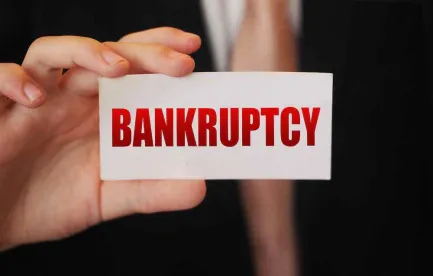On December 27, 2020, in response to the economic distress caused by the COVID-19 pandemic and to supplement the CARES Act enacted in March 2020, the Consolidated Appropriations Act of 2021 (the “Act”) was enacted. In addition to providing $900 billion in pandemic relief, the Act benefits both debtors and creditors by temporarily modifying the following sections of the Bankruptcy Code, which may be of particular interest to creditors:
-
Section 364, which governs postpetition financing.
-
Section 365(d)(3), which requires a debtor to continue to perform its obligations under a lease of nonresidential real property after filing bankruptcy.
-
Section 365(d)(4), which sets the deadline for a debtor to assume a lease of nonresidential real property.
-
Section 366, which limits utilities’ ability to terminate services to debtors.
-
Section 525, which protects against discriminatory treatment of debtors as a result of filing bankruptcy.
-
Section 541, which defines what constitutes property of the debtor’s estate.
-
Section 547, which allows a debtor to recover payments made to creditors immediately before filing bankruptcy.
Notably, despite the ongoing economic disruption caused by the pandemic, the Act did not address the provision of the CARES Act increasing the debt limit for small businesses seeking to reorganize under subchapter V, which is scheduled to sunset on March 27, 2021. The Act’s amendments to Sections 364, 525, and 541 are discussed below.
First, the Act authorized another set of Paycheck Protection Program (“PPP”) loans, and provided that “small business debtors” – those having debts of no more than $7.5 million, among other limitations – are eligible to receive PPP loans. This amendment attempts to resolve previously inconsistent bankruptcy court decisions regarding the eligibility of debtors to obtain PPP loans. For context, the Small Business Administration (the “SBA”), which administers the PPP, has uniformly denied debtor requests for PPP loans, leading to legal challenges across the country. In order to address this situation, the Act amends Section 364 of the Bankruptcy Code to allow certain debtors, including small business debtors, to obtain PPP loans if they are otherwise eligible, upon notice and a hearing. This amendment will only take effect, however, if the SBA makes a determination that debtors are generally eligible for PPP loans. There is no deadline for the SBA to make any such determination, leaving the actual ability of debtors to obtain PPP loans in limbo.
Relatedly, the Act amends Section 541 of the Bankruptcy Code to provide that pandemic relief payments are not property of the debtor’s estate. As a result of this revision, pandemic relief payments will not be available to satisfy obligations owed to creditors. This amendment will sunset on December 27, 2021.
In addition to expanding debtors’ ability to obtain PPP loans, the Act also amends Section 525 to ensure debtors can benefit from various pandemic-related legal protections. Section 525 generally offers debtors protection from discriminatory treatment. As amended by the Act, Section 525 prohibits a debtor from being denied relief, on the basis of currently being or having been a debtor, under the CARES Act’s (i) foreclosure moratorium; (ii) provision providing for forbearance of residential mortgage loan payments for multifamily properties with federally backed loans; and (iii) temporary moratorium on eviction filings. This modification of the Bankruptcy Code is set to expire on December 27, 2021.
In conclusion, the Act makes multiple amendments to the Bankruptcy Code benefiting debtors that creditors would do well to keep in mind. Subsequent blog posts will discuss the Act’s amendments to Sections 365 and 547.





 />i
/>i

